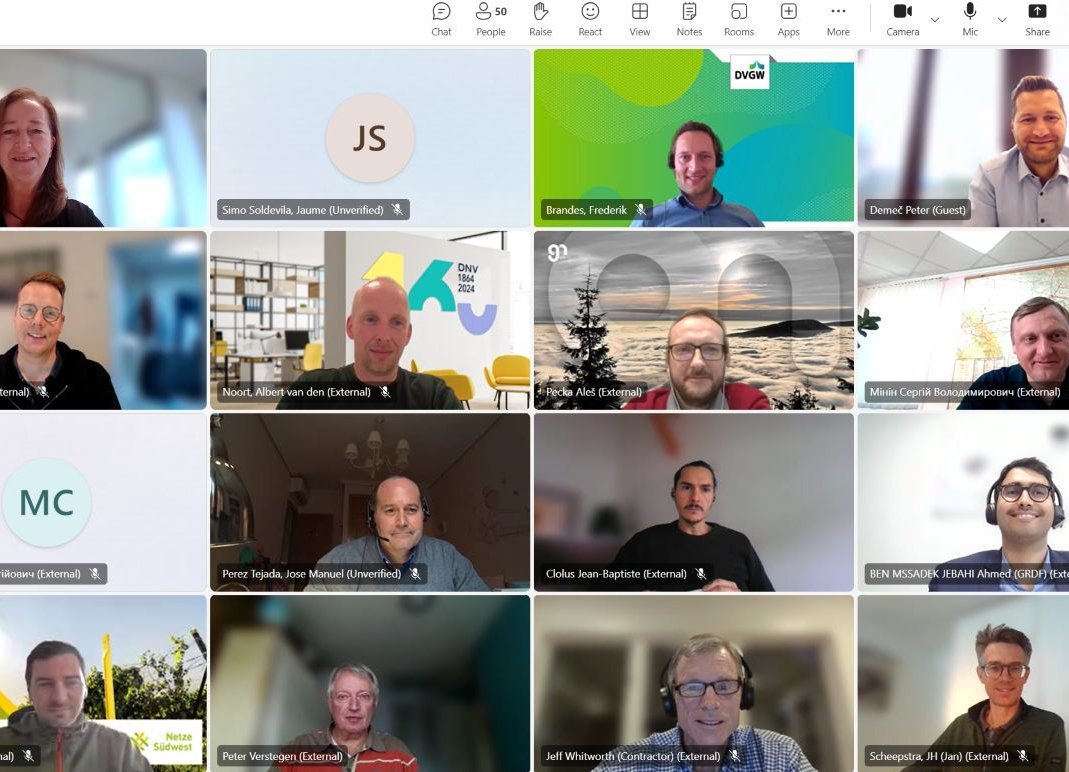


This week, Ready4H2 held its third workshop focusing on the safety issues associated with transporting hydrogen through the distribution grid. The workshop enabled the 66 participants to better understand the key technical, commercial and personnel issues, and stay up to date on the latest regulations, standards and technology.
DVGW, GRDF and Alliander shared the latest methodologies and site test results on hydrogen leaks and leak detection system. They showed that hydrogen leakage shows similar behaviours to methane leakages and that ready-to-use detection equipment is already available.
DNV, GRDF and GasNet discussed social acceptance of new hydrogen grids in communities. Experience has shown that the perception of risk is driven mainly by fear of the unknown or misinformation, rather than technical issues, and that the importance of honesty and open communications is crucial in any project or DSO operation.
Studies on gas quality, odorisation of natural gas/hydrogen mixtures and pure hydrogen were presented by Marcogaz, Stedin, GrDF and Cadent. Revisions to the application of HCA, hazard zone and ATEX zone were discussed, in light of the differences between in handling methane and hydrogen. PRCI (Pipeline Research Council Int) showcased the impacts of hydrogen on materials and components and provided an update on their Emerging Fuels Institute (EFI) hydrogen research.
The workshop was led by Ready4H2 Working Group 3 leader, Peter Demec from SPP Distribucia, who confirmed that: “Hydrogen distribution using existing gas grids can be as safe as natural gas distribution, however proper safety measures must be applied. The workshop allowed us to discuss the most important differences between hydrogen and natural gas properties, focusing on their consequences on practical situations gas distributors are dealing with”.
The next technical workshop will be on the results of the Ready4H2 Transformation Survey on 14th of October – members only.